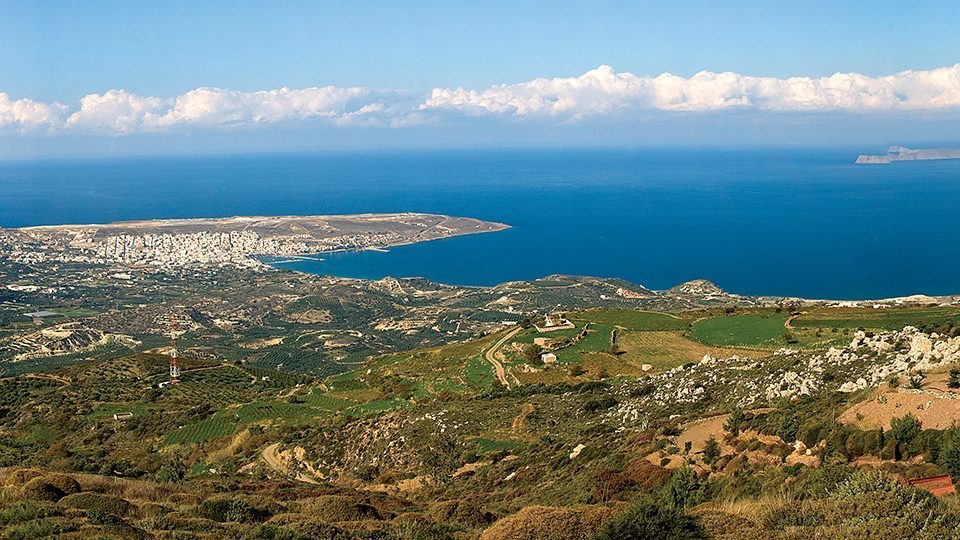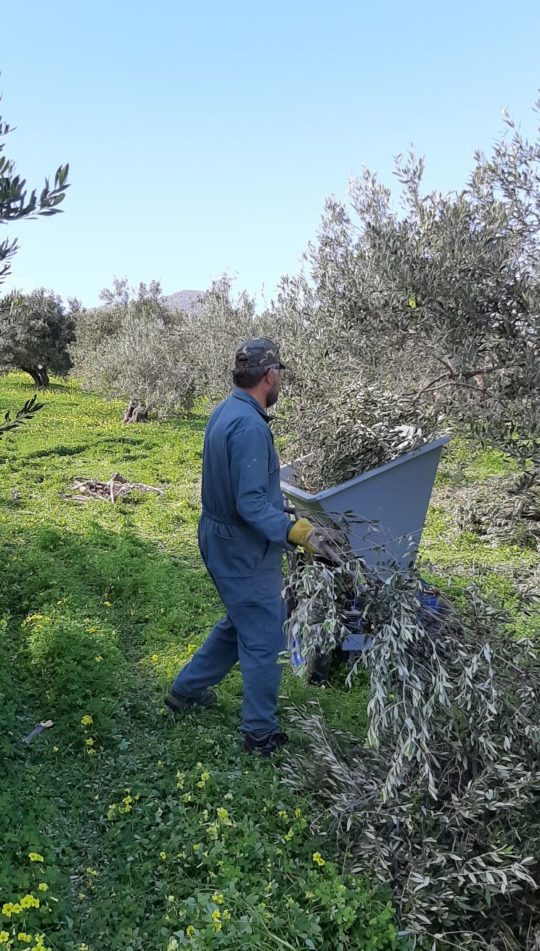
The olive tree has been cultivated in the area of Zakros for 4.000 years, since the time of the Minoans. The area was also full of native, refined olive trees, especially near the flow of spring waters. Since the 19th century systematic planting, the olive groves have multiplied, their variety now being almost exclusively Koroneiki.
Koroneiki, or lianolia, psilolia, ladolia, koronia, vatsiki and Kritikia, is a variety whose fruit may be small, but produces a fine quality of delicious, aromatic olive oil, rich in oleic acid and antioxidant polyphenols. It thrives in Greece, especially in Crete, where it is perfectly adapted to local conditions.
Given its international distinctions and Protected Designation of Origin products, it is no coincidence that the land of Sitia is one of the best olive groves in the world.

Extra virgin olive oil, with exquisite taste and quality characteristics. For its production, Koroneiki variety is exclusively cultivated in unique natural conditions, applying specific cultivation methods.
The extra virgin olive oil of Zakros stands out among the Sitia Lasithiou Kritis Protected Designation of Origin products, thanks to its own unique mark of elegant aromas. In addition to sustainable cultivation practices, a series of natural advantages of the area contribute to its special organoleptic and physicochemical characteristics.
The result of this nature and human cooperation is an olive oil that is very delicate in taste, rich in antioxidants and unsaturated fats, fruity of medium intensity, well balanced, moderately spicy and bitter, with a smooth pleasant taste and a long aftertaste.
Interesting: Chefs and cooking enthusiasts love Zakros Olive Oil Politeia extra virgin olive oil, because its taste does not overpower the other flavors of a dish, but rather highlights them, offering an ideal gastronomic background.
The area of the Mountains of Zakros covering the western, eastern and southern mountainous areas of the town of Zakros, up to Xirokampos, is part of the Sitia Global Geopark and a protected Natura 2000 area, including scattered sites of paleontological interest, rare flora and fauna, and important archaeological sites. Centuries-old and super-centuries-old Minoan olive trees are still cultivated here today.
Such a natural environment, constituting an integral part of the value of the product and of our land, makes its protection an absolute priority. In the Agricultural Cooperative of Zakros, we apply a quality agricultural production model, supported by science. Extra virgin olive oil is produced in a completely natural way, using modernized equipment, with respect for the pace of nature.

The Agricultural Cooperative of Zakros constantly invests in a healthy harvest. The inputs for the nutrition of the olive trees are complementary, rational and targeted, upon analysis of the specific needs of the olive grove (analysis of soil, water, fruits). The soil is naturally aired and cleared of weeds, using mechanical means.
Image: Crushing of branches with special machines, in order for the residues of the pruning to be used in cultivation. Nothing goes to waste, when it comes to the olive tree.
To protect the olive tree from its natural enemies, many ecological practices are already being applied in a coordinated manner. An example of this is setting traps to attract them. Ground bait sprays are used against fruit flies, with preparations approved for our region by the Ministry of Agriculture. The olive groves are continuously monitored by agronomists, so that there is convergence with the EU specifications and all the applicable standards.
All quality control and certification procedures are followed at every stage of the production process. From the training and implementation of good cultivation practices by the producers, to the orderly operation of the Cooperative facilities compliant with the safety and quality standards. The result is the production of a quality final product, completely safe for the consumer, without pesticide residues, in collaboration with nature.
In the field of quality improvement and environmental protection, the Cooperative has made a significant investment since 2015, through participating, for two consecutive three-year terms, as a Producers’ Organization, in the implementation of the work program of the Operators’ Organizations in the Olive Sector. The activities of the program focus on the modernization of olive cultivation processes, the enhancement of the quality characteristics of the products, the training of the producers, the procurement of equipment and the development, implementation and certification of an Integrated Management System.
Producers receive constant training on subjects such as carbon footprint determination, good fertilizing practices, waste prevention, treatment and utilization of pruning residues, composting, soil sampling.